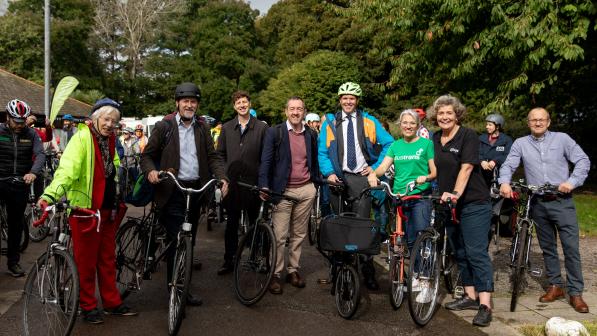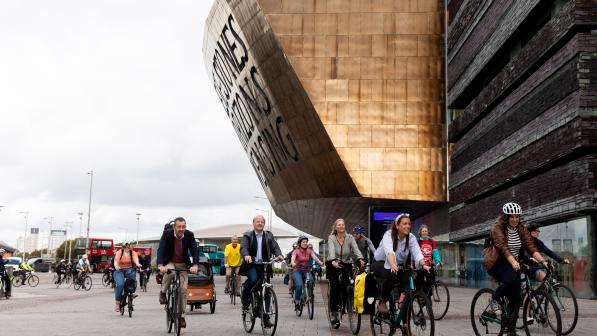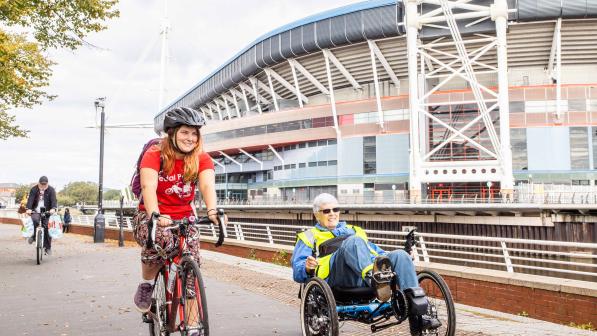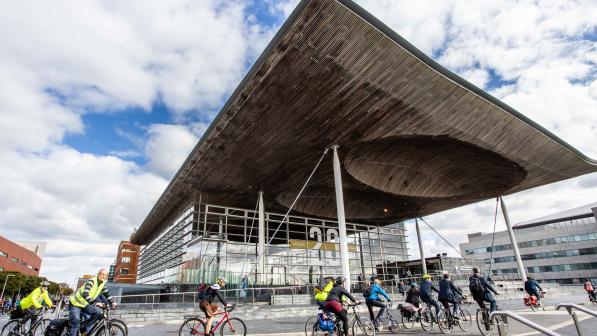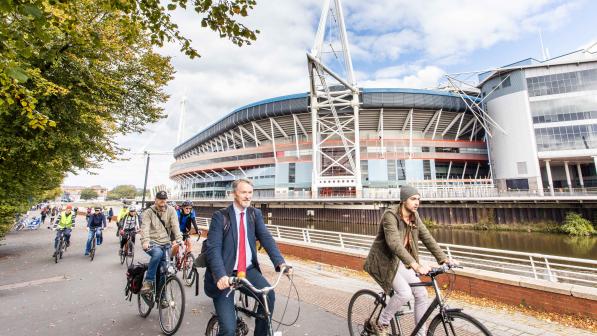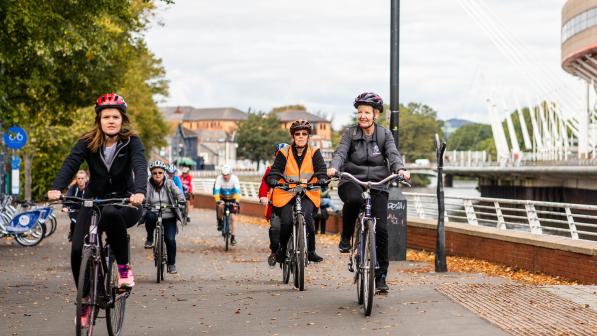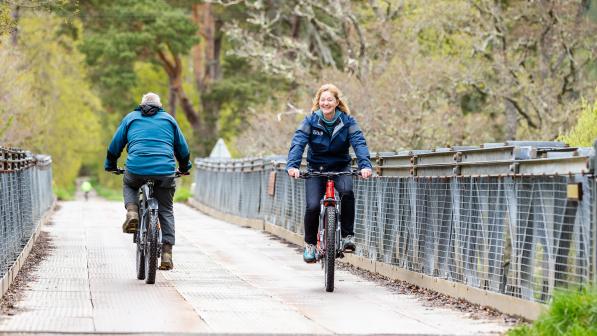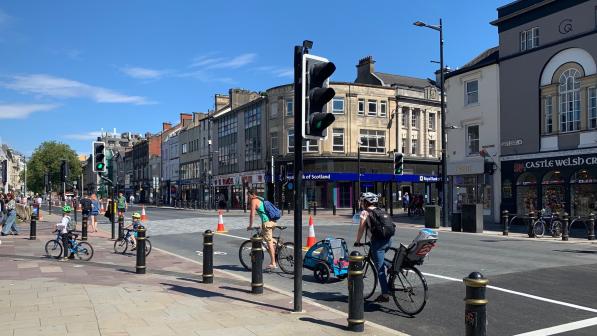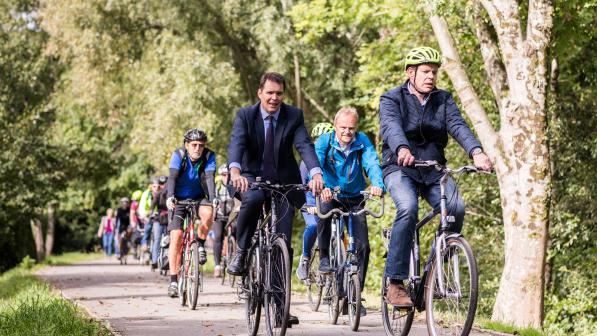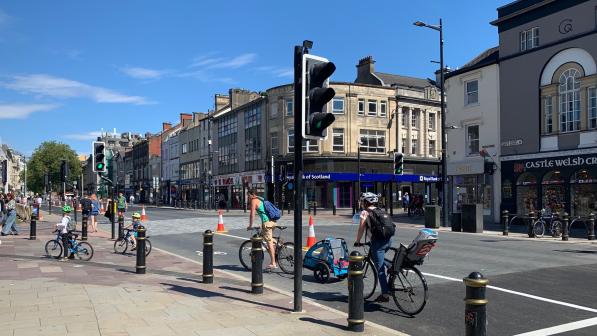Getting Wales’ Active Travel Act Back on Track

As a cyclist who regularly uses my bike to get to get to work, I’m very proud of Wales' Active Travel Act. When it was passed in 2013 it was a world-leading piece of legislation requiring the planning and construction of networks of walking and cycling routes that would enable people to make their everyday journeys by bike or on foot safely, conveniently and directly.
It was a clear statement that the bike was back as a means of transport. We passed the legislation because of the amazing health, air quality, climate and environmental benefits to be gained by getting more people to walk or cycle rather than drive. But being proud of the legislation doesn't mean we’re not going to press for change if we're not getting the results we need, and the truth is that rates of active travel in Wales have not improved since the passing of the Act.

The legislation was put in place by the Senedd, the Welsh Parliament, and to monitor how well it is working we have a Cross-Party Group on the Active Travel Act, which I chair, made up of MSs from all four main parties in Wales.
In January, we set up an expert panel to conduct a review of how well the Act and its associated measures were performing. The Panel, which included representatives of Cycling UK, has now published its report.
It's a frank assessment of why Wales hasn't yet realised the ambition of the Act 'to make walking and cycling the most natural and normal way of getting about'. But it's not all doom and gloom - the Panel have set out 51 recommendations that if adopted, could put active travel in Wales back on track.
We already have a lot going for us. The current minister in charge of active travel, Lee Waters, deputy minister for climate change, is a passionate supporter of the Act and has increased per-head spending on active travel from around £5 in 2016 to £23 in 2021.
He's also introduced a new transport policy, Llwybr Newydd, which has a firm commitment to modal shift away from the car, backed up by a roads review that has put a hold on most new road building in Wales.
Wales is moving towards a default 20mph speed limit in urban areas and plans for a ban on pavement parking are in the pipeline. Planning policy in Wales is based on the sustainable transport hierarchy, insisting that all new developments prioritise walking, cycling and public transport above the private car. Indeed, Planning Policy Wales requires developers to put active travel infrastructure in place ‘early on in a development, and before the people living there move in, to support active and healthy travel patterns from the outset’.
However, the Panel found much of the good practice that is taking place in Wales is too inconsistent to have the level of impact needed. We have major problems with the capacity of the teams available to deliver active travel infrastructure at a local authority level. This is partly due to the increase in funding being capital rather than revenue - active travel units are underfunded and understaffed. There is also a need for a greater understanding of active travel across all departments, not just transport. Consequently, we are proposing a significant increase in revenue funding and a major training programme.
At a national level, we want to see a new National Delivery Plan developed, setting out exactly how we will make the best use of the available funding, focussing rigidly on achieving modal shift so that every penny goes to address our climate emergency. That plan will include ambitious but realistic targets for increasing active travel along with a standardised approach to data gathering so that we can monitor where progress is and isn’t being made.
As well as building infrastructure, the Act required the Welsh Government and local authorities to promote active travel. We all know that safe infrastructure is key but we also need to convince people to use it. To that end, we want a major behaviour change campaign led by a new specialist behaviour change unit based in Transport for Wales.
We also need to reach out to those people who might never be persuaded to use their car less but could be persuaded to be more considerate drivers around pedestrians and cyclists and to appreciate why some parking spaces may have to be sacrificed so that we can save our climate.
The Panel had a strong focus on the accessibility of active travel. We know from the experiences of the fabulous Pedal Power Inclusive Cycling Centre where we are launching the report that given the right support and adaptations, cycling can transform the lives of people with disabilities, giving them a greater degree of independence and a significant boost in confidence. But that only works if the infrastructure accommodates non-standard cycles and trikes. Consequently, we are calling for the removal of all restrictive barriers on active travel routes.

We also want to see much more consideration given to people with disabilities in the way we consult upon and design active travel infrastructure. But even Wales’ limited data on active travel tells us that it is not just people with disabilities who often feel excluded from active travel.
The Panel heard how women, the elderly, ethnic minorities and the less well-off are all significantly less likely to feel that active travel - particularly cycling - is meant to appeal to them. Consequently, we want to see more support for programmes that provide pathways for these groups which demonstrate the benefits of more active lifestyles.
It is not possible in this blog to do justice to the detailed analysis and closely argued case for change contained in the report. There is a lot in the document that will be of interest to cyclists outside of Wales and I hope you will consider reading it. Finally, I would like to thank the Panel for all their hard work on the review, all unpaid work and fuelled only by a determination to transform Wales into an active travel nation.
